You can’t cage the Cage!
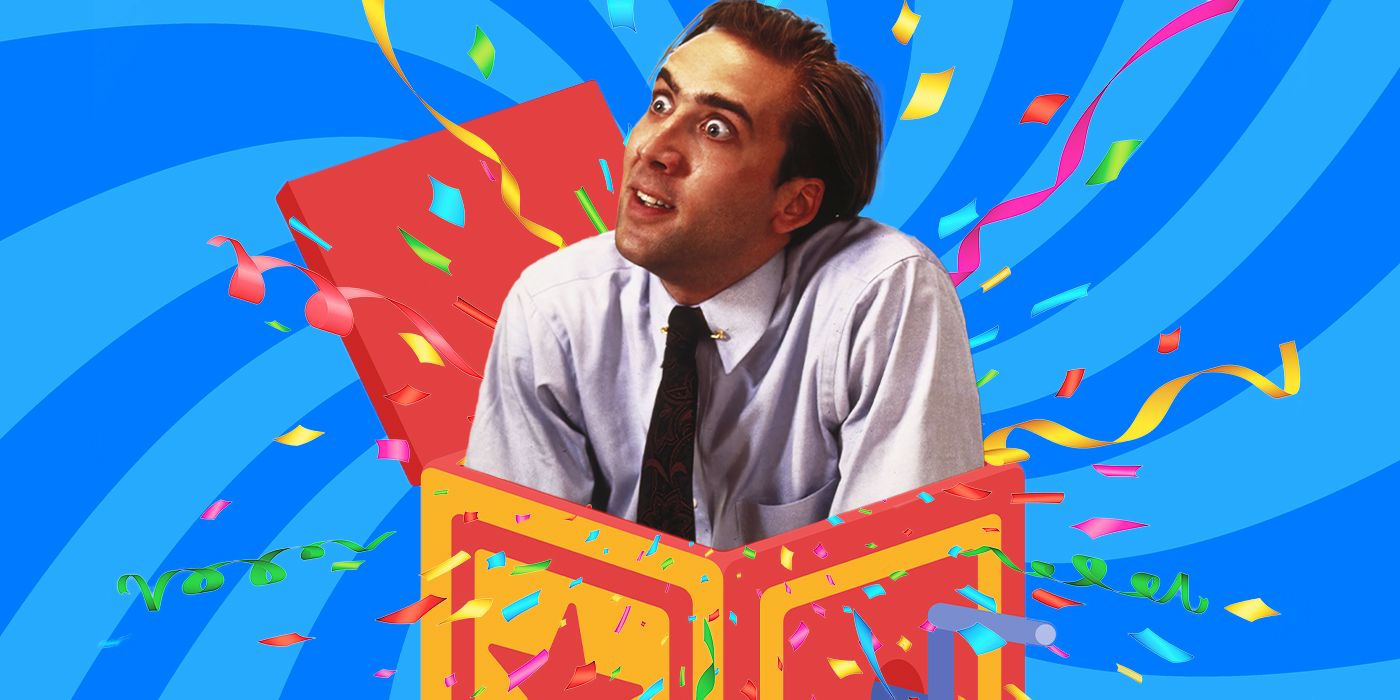
THE BIG PICTURE
Nic Cage draws inspiration from silent-era film actors and Kabuki performances, favoring larger-than-life, facially expressive acting styles.
Cage’s over-the-top acting style doesn’t always work in dramatic roles, but he finds a balance in titles like Moonstruck and Leaving Las Vegas .
Cage’s wild acting style is best suited for comedies, where he can go all out and deliver hilarious performances in films like Kick-Ass and Adaptation .
There’s a good chance that, if you hate Nicolas Cage, you just aren’t a human. For decades now, Nic Cage has consistently remained one of our most interesting actors. His filmography boasts one of the most diverse bodies of work out of any living actor, both in his ability to hop from genre to genre, and honestly, in the range of quality of movies that he’s in. One thing remains though, and that is Cage’s commitment to his craft.
Whether he’s dealing with big-budget blockbuster entertainment, highbrow auteur-driven fare, or direct-to-DVD junk (who doesn’t love some good junk food?), Cage brings his A-game.
Whether you prefer him in bigger movies or smaller passion projects, one thing is certain, and that is that Nic Cage is just better in comedies! We love a good Pig or a Leaving Las Vegas, but when Cage is aiming for laughs (or unintentionally providing them), he’s at his very best.
Nicolas Cage’s career has been running strong across five decades, ever since Fast Times at Ridgemont High in the ’80s. That decade saw him mostly playing in lighter fare, only for the ’90s to deliver the most bang for your buck in regards to his dramatic chops. The late ’90s and 2000s saw Cage turn into a full-on blockbuster movie star after dipping his toes into the works of Michael Bay and Simon West, while also dabbling in a few franchises here and there.
Once we hit the 2010s and 2020s, he’s gone in the complete opposite direction. By and large, he’s mostly popped up in home video releases, with the occasional acclaimed indie movie here and there. No matter what project he takes on, be it Johnny Cage in Ghost Rider or Charlie and Donald Kaufman in Adaptation, Cage digs deep within himself to bring a heightened, impressionistic flare to his roles.
Echoes of the silent era are felt in every frame, with his face doing a lot more of the talking than his words even do. Sometimes this benefits a drama, but it can also lead to those movie’s detriment. But when it comes to being funny, whether he means to or not, this “big” acting approach shows him where he’s at his best.
Hapless family man Paul Matthews (Nicolas Cage) finds his life turned upside down when millions of strangers suddenly start seeing him in their dreams. But when his nighttime appearances take a nightmarish turn, Paul is forced to navigate his newfound stardom, in this wickedly entertaining comedy from writer-director Kristoffer Borgli (Sick of Myself) and producer Ari Aster. – A24
Where Does Nicolas Cage Draw Inspiration for His Characters?
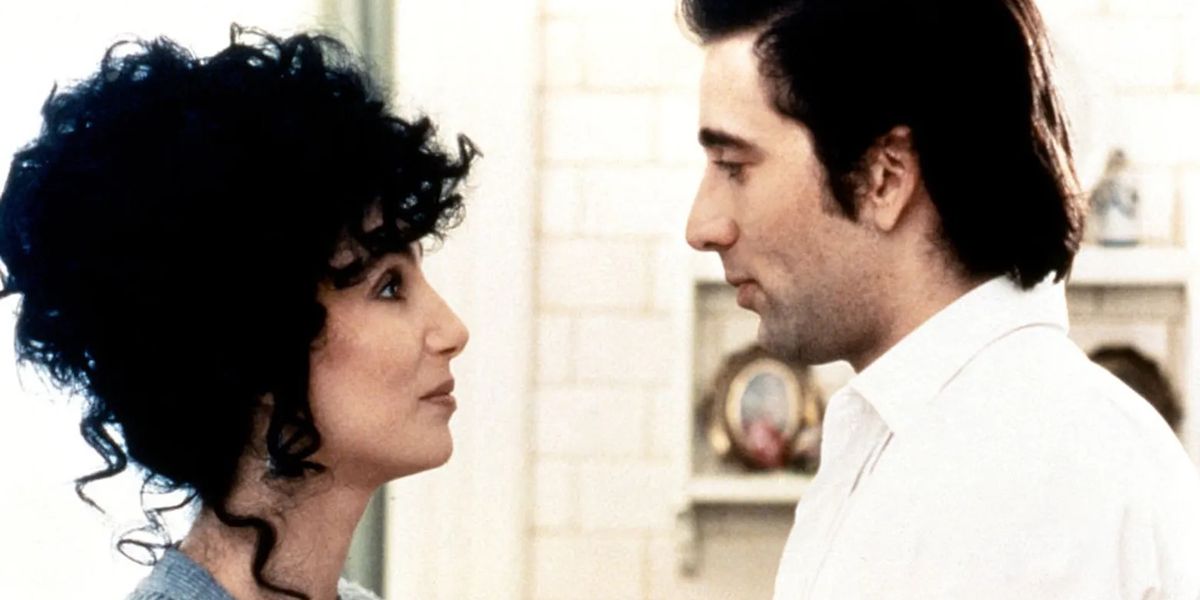
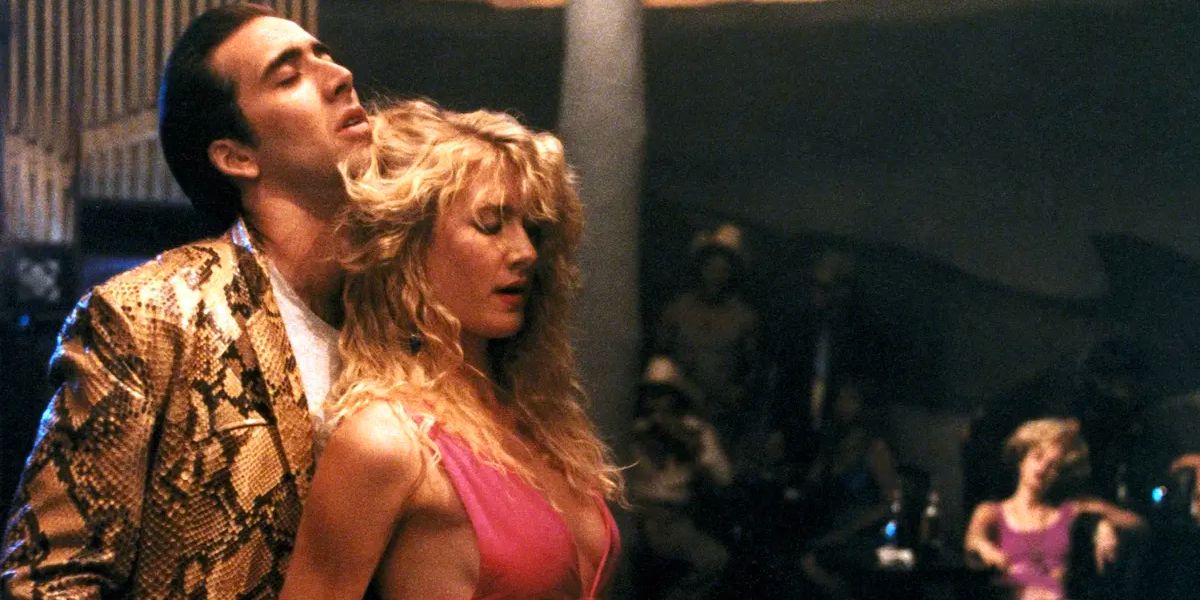
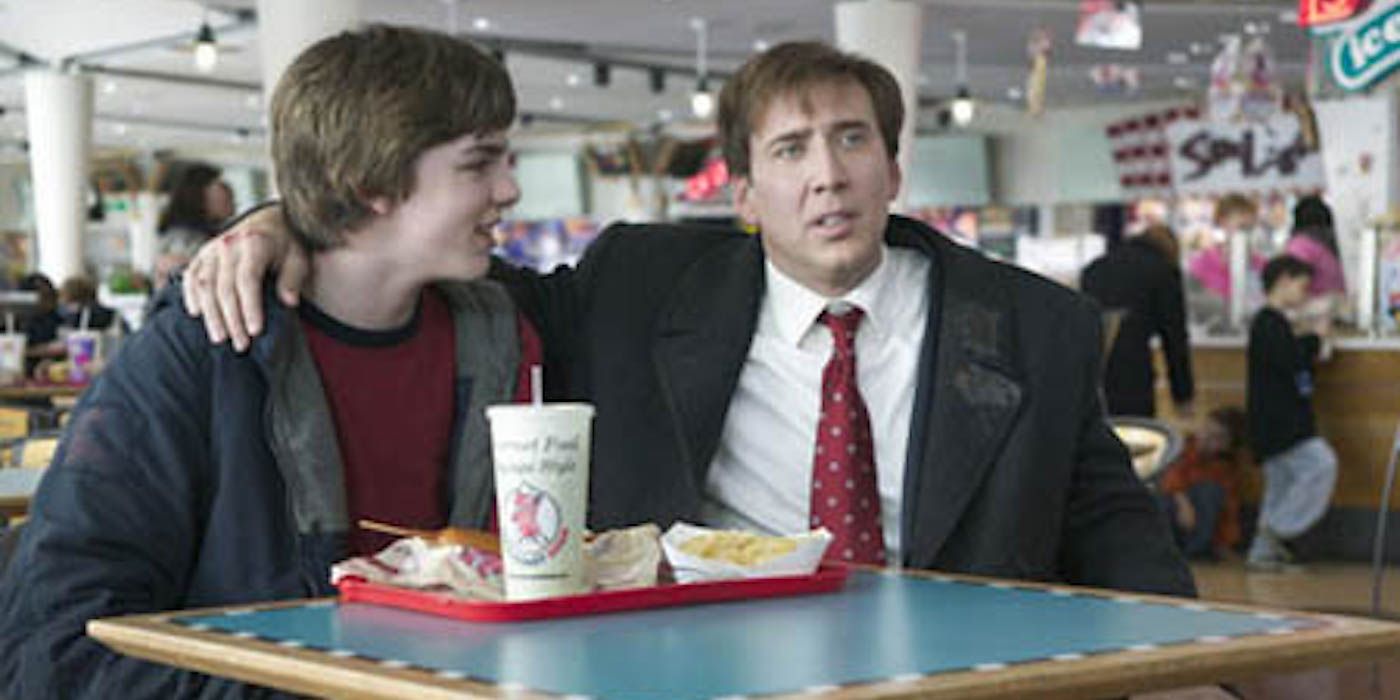
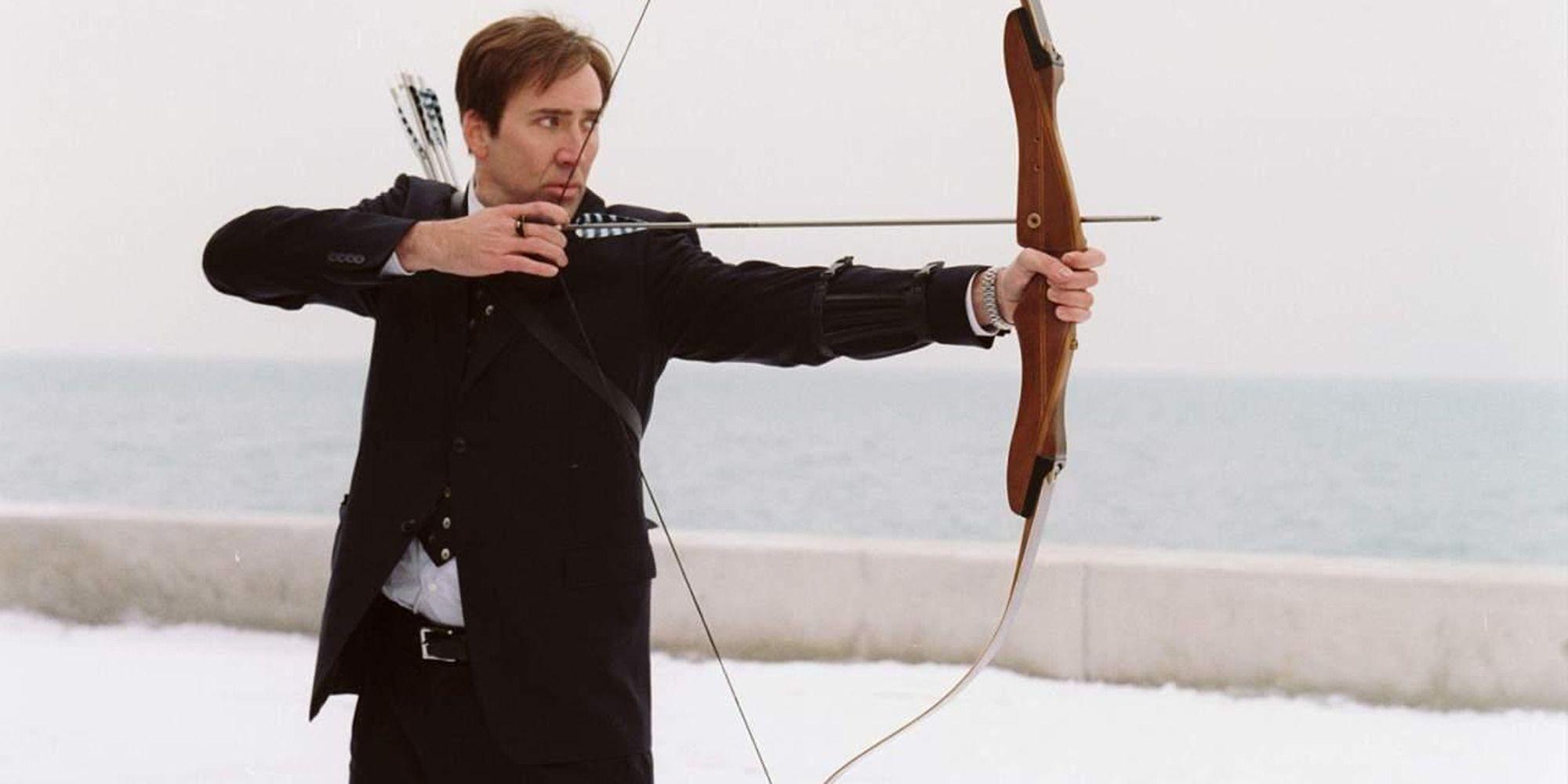
Now when we’re talking about Cage’s exaggerated delivery, that’s all very intentional. This isn’t an actor that pulls inspiration from places that you would normally expect. Instead, he prefers to look to the past. In a 2022 Reddit AMA, Cage cited silent-era film actors, Golden Age icons, and the performance styles in Kabuki as different corners of his craft that have inspired him.
Whether you’re looking at the two eras of film or the classic Japanese theater that he cited, any way you roll it, Cage is fascinated by larger-than-life acting. These three all boast artists that often use their faces to get across their character’s emotions more than their voices.
With Kabuki (a form of Japanese theater) in particular, theater is a medium where performers’ mugs aren’t blown up on a big screen. Every change in their expression has to be big so that audiences in the front and back rows can see them clearly.
The difference is that Cage isn’t in a playhouse or a theater on Broadway — he is on the big screen! So instead, we have a man whose towering face is shifting to various cartoonish proportions. It doesn’t matter if he’s in Moonstruck, Wild at Heart, The Rock, or The Weather Man, Cage is going to go big. Sometimes, that can be a great thing. Other times… not so much.
Nicolas Cage’s Acting Style Doesn’t Always Work in Dramatic Roles
When Nicolas Cage is performing in a drama, he isn’t a total goof or anything. It’s not like he’s there to sabotage the production with some sort of atom bomb performance that won’t link up with those around him. The difference between him and his coworkers is that he knows when to dial it up, and then scale it back.
His work in Martin Scorsese’sBringing Out the Dead is the perfect example of this. As that movie starts out, Cage plays a burnt-out ambulance driver on the cusp of a 48-hour shift. He continues to venture through the seedier pockets of Manhattan as the runtime chugs along, where we find his mental state slipping further and further.
About halfway through, he’s lost it. Now, he pilots his big boxy vehicle with his eyes wide, brows that ride a mile up his forehead, and a grin stretching the length of a football field. This approach to acting fits Bringing Out the Dead perfectly because his character’s already odd head space balloons in that aspect.
This isn’t to say that his gonzo facial expressions and line deliveries can’t work in a movie where every other aspect is playing it straight. He finds a well-deserved balance in titles like Moonstruck, Leaving Las Vegas, and Joe, all of which find Cage having his moments of that silent movie flare.
That said, in regard to movies like The Wicker Man remake, sometimes his over-commitment can actually be a movie’s detriment. There has been a retroactive reclamation that Wicker Man is actually a black comedy, but if you were there when it came out in 2006, you know the truth.
That was meant to be a stone-cold horror experience, but when Cage is screaming “Not the bees!” and “How did it get burned?!”, it makes you wonder if that movie should have gone with someone else who wouldn’t have gone so over the top. In all likelihood, that movie probably would have been terrible no matter who took the part. When you look at other movies like The Rock and 8MM, more serious moments can be undercut now and then by certain out-of-place and bombastic choices that he makes.
Nicolas Cage’s Over the Top Acting Style Always Works in Comedies
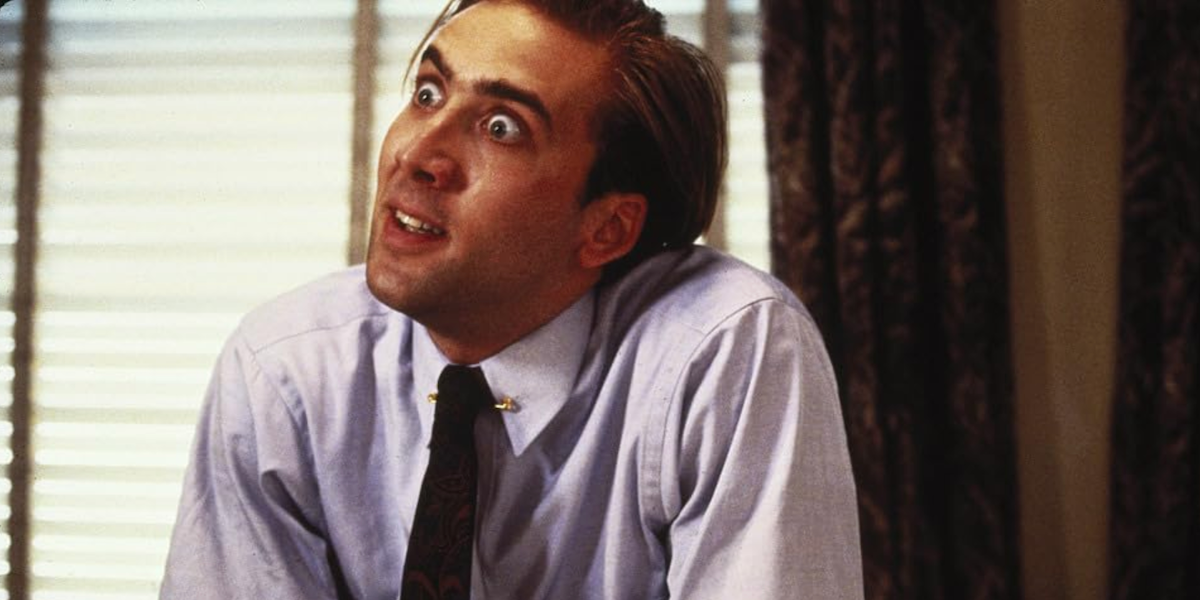
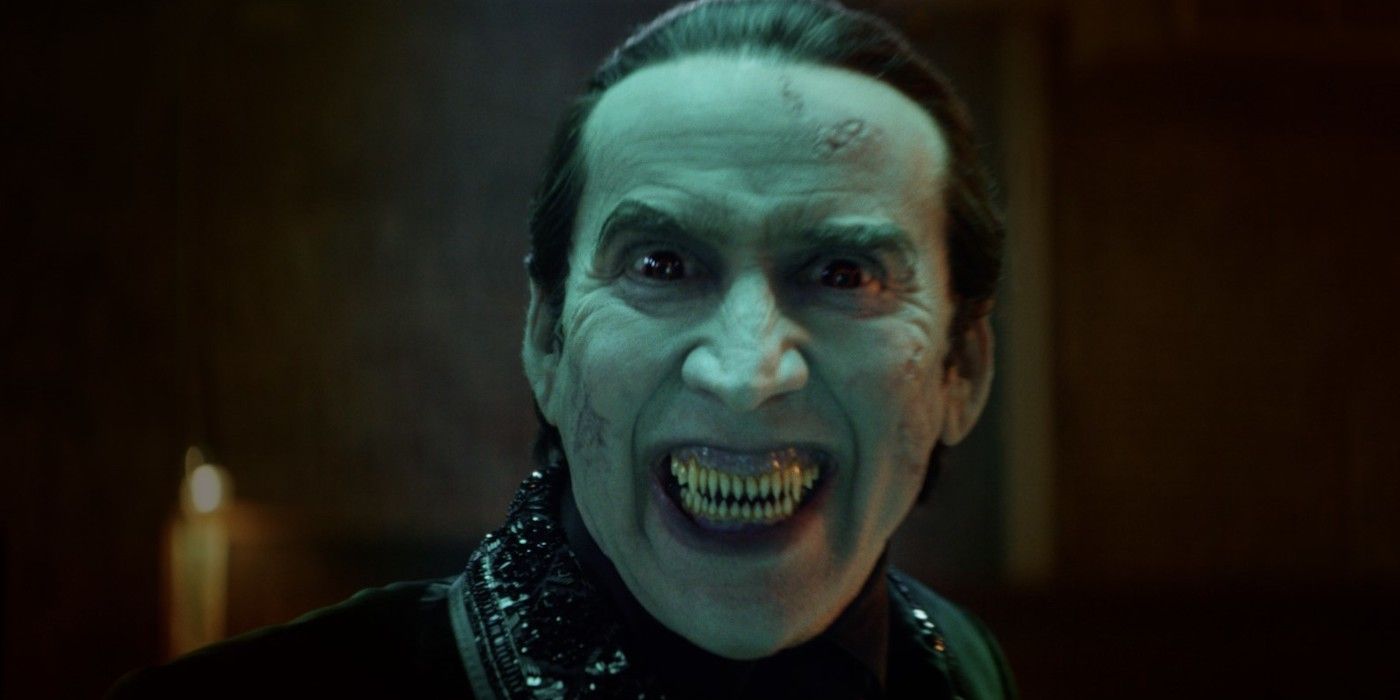
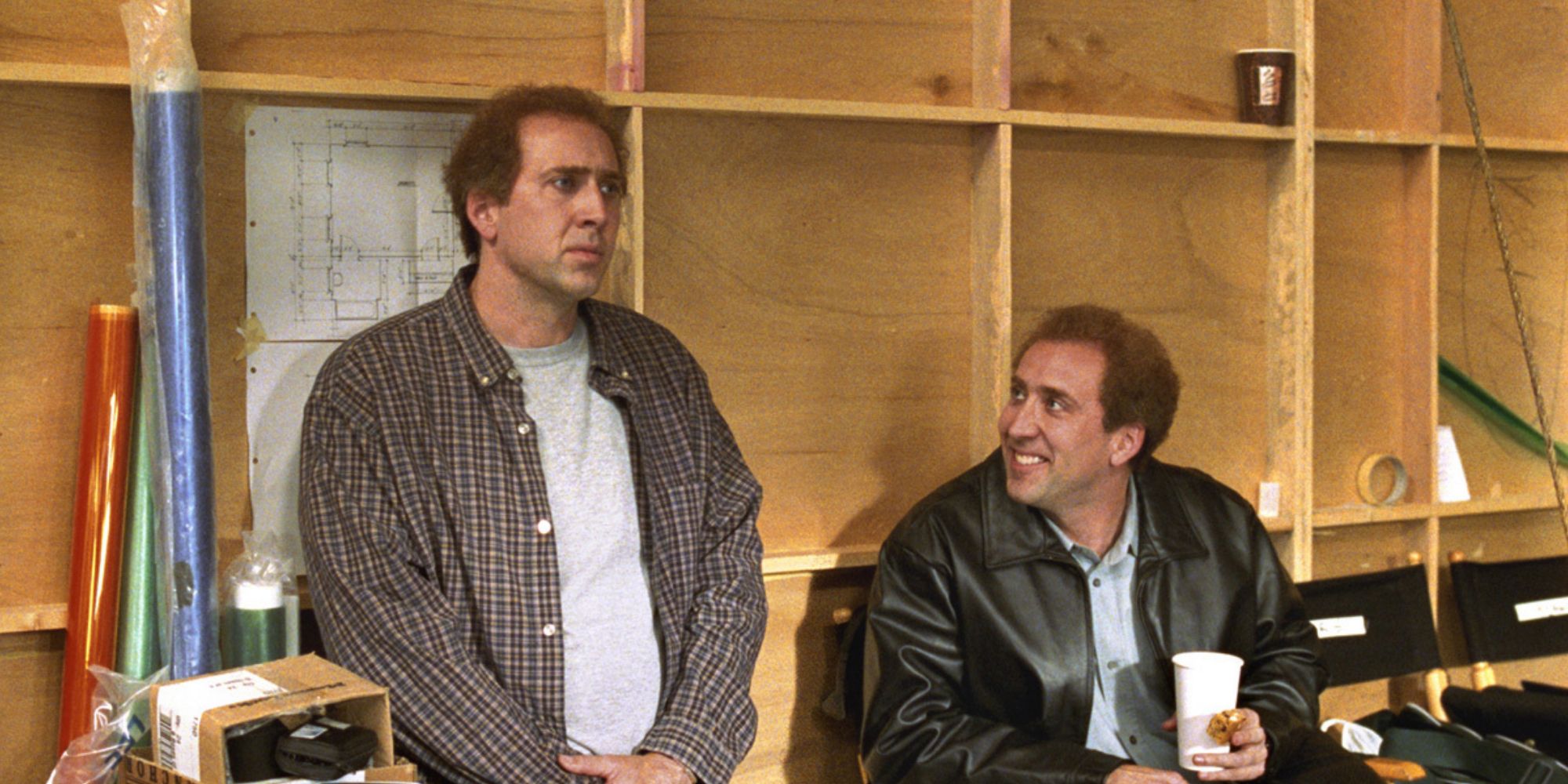
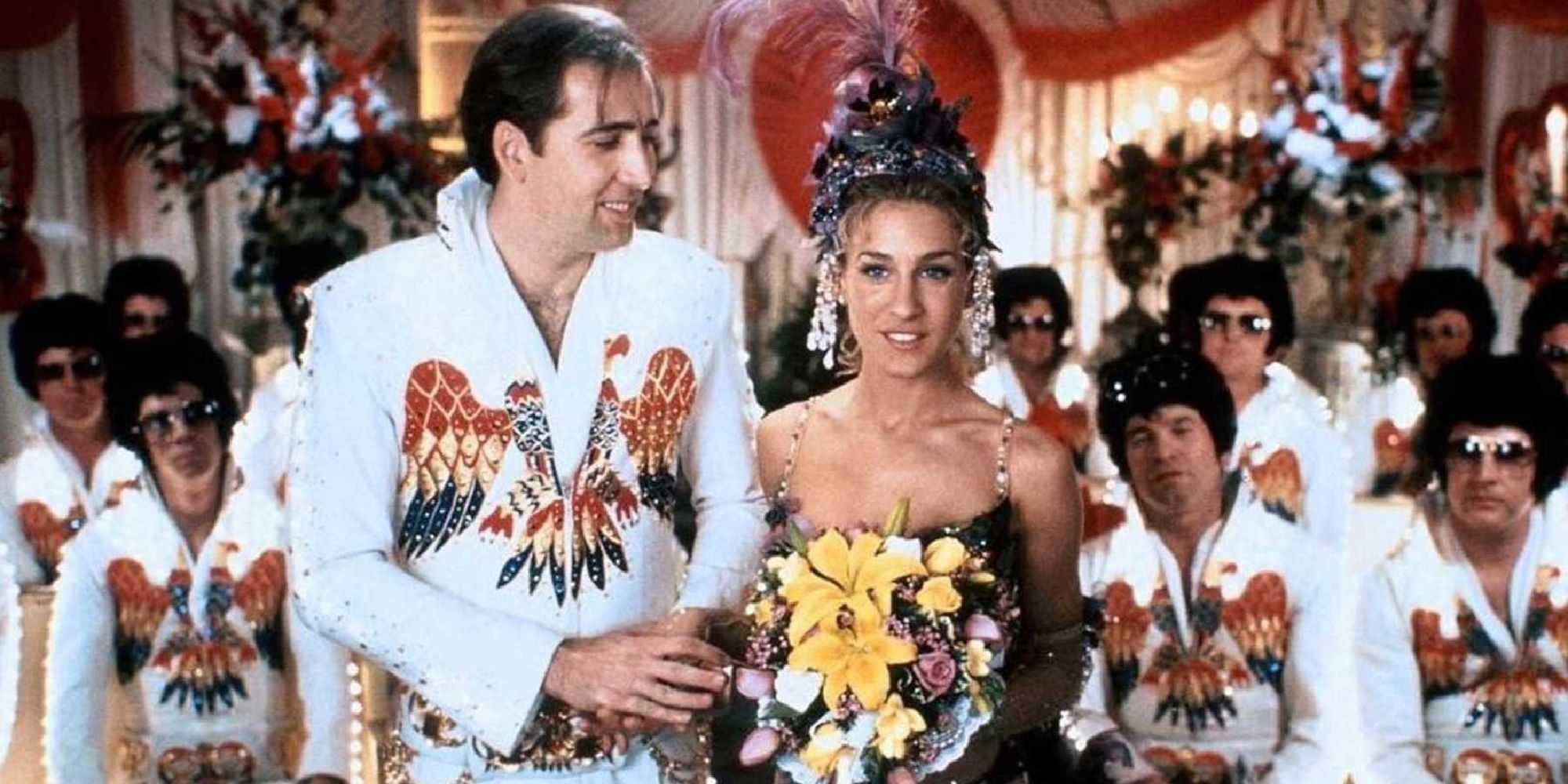
When he’s performing in a comedy, this wild style of acting is nothing but encouraged. When Cage is showing up to play in something along the lines of Kick-Ass, Grindhouse, Vampire’s Kiss, or Adaptation, the movie is already supposed to be a little unbelievable.
Comedies need a stretch of the exaggerated, whether it’s a dramedy or a full-on farce. So in these cases, Cage doesn’t have to reserve himself from sticking out like a sore thumb. He’s more likely to get laughs the bigger he goes, so why not go all the way? It’s not like he’s bringing playing cards to a football game, he’s got
Look at Kick-Ass, where he delivers an overly serious, uber-badass performance of a fatherly superhero with absolutely no sweat off his brow. There might be a world where Vampire’s Kiss was meant to be a straight-up horror movie, but Cage veers that movie off the rails of spooky and straight into silly. It absolutely rocks! Adaptation finds him delivering duel performances as the Kaufman brothers, a movie that allows him to run just about every possible gamut of acting — the light and dark sides.
Then, with big-budget blockbuster fare, Cage knows exactly how funny to be to keep a movie both entertaining and his protagonist likable. They might not be the best movies ever, but Cage is unreal in the Ghost Rider movies, and is a terrific star in the National Treasure series.
He brings the comic and the cool to equal levels. Then there’s Renfield. Even though that movie doesn’t entirely work, everyone agrees that he’s hilarious as Count Dracula. In all of these instances, it’s appropriate. With comedy, you can never ask too much of Nic Cage. No matter what, he’s just going to go big.
Listen, Nicolas Cage played himself in a comedy! You know, 2022’s The Unbearable Weight of Massive Talent. Now, in reality, that doesn’t say much about where Cage actually stands on the equation of whether he prefers acting in dramas or comedies, or if he would rather be seen as a dramatic or comedic actor.
I doubt that he has much of an answer for that, given the breadth of his filmography. Regardless of whether or not Cage is a better comic or dramatic performer, all we can hope is that he never stops giving us movies to love.